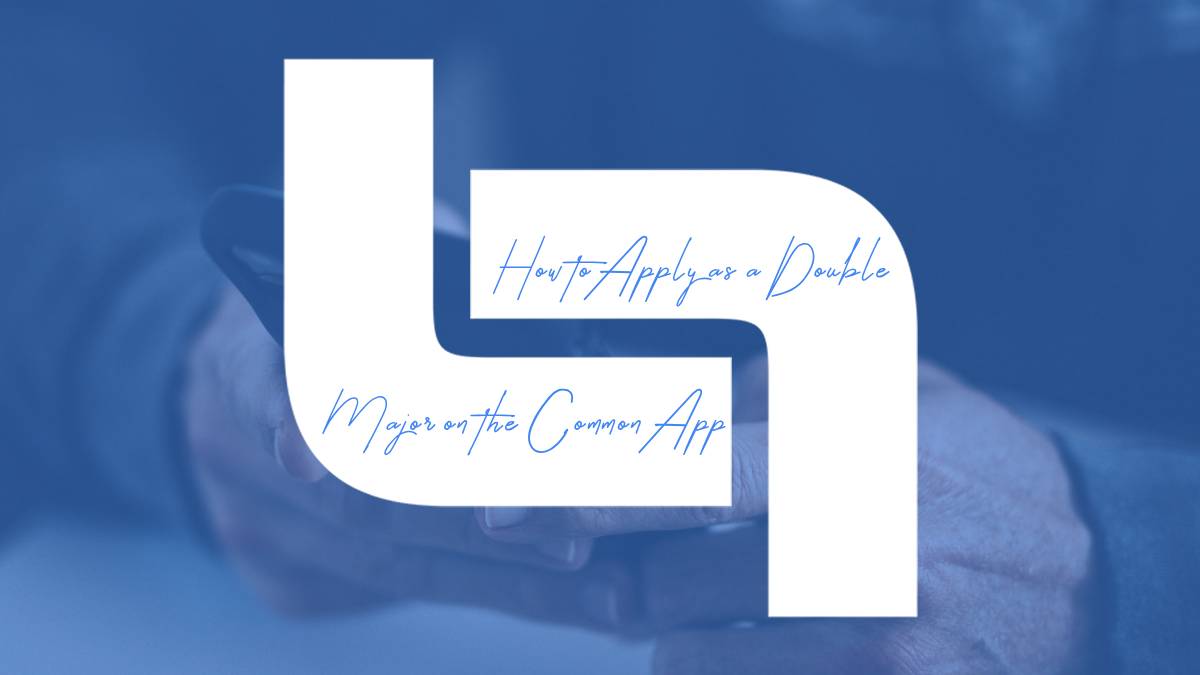The Common Application (Common App) is a widely used college application platform that allows students to apply to multiple institutions with a single application. If you’re a student considering pursuing a double major, you might be wondering how to indicate this on your Common App and navigate the process effectively. Here’s a comprehensive guide on how to express your interest in a double major on the Common App, along with some useful tips to make your application stand out.

Step 1: Research Each School’s Double Major Policy
Before you start filling out the Common App, it’s important to research the policies of each school you’re applying to. Every college has different guidelines for double majors. Some schools offer double majors as an option in the application itself, while others only allow students to apply for a single major initially, with the possibility of adding a second major after they’ve enrolled.
– School-Specific Requirements: Look up each college’s requirements and policies on their admissions website to see if you can declare a double major right away or if you need to wait until after acceptance.
– Eligibility and Limitations: Some colleges limit the fields that can be double-majored. For example, two highly rigorous majors might be restricted due to academic load concerns.
Understanding each college’s policy on double majors will help you approach the Common App with clarity and ensure that your application aligns with each school’s requirements.
Step 2: Indicate Your Primary Major on the Common App
The Common App typically allows applicants to select one primary major. Here’s how to choose and indicate your primary major on the application:
1. Navigate to the “Education” Section: Go to the “Education” or “Academics” section within the application. Here, you can select a major of interest for each school.
2. Choose a Primary Major: When choosing your primary major, think about which one aligns most with your interests and long-term goals. Many schools use your primary major selection as part of their admissions decision, so choose one you’re passionate about and can showcase effectively in your application.
3. Specify Your Interest in a Double Major: If a school allows double major declarations on the Common App, there will usually be an option to indicate a secondary field of interest. This is often in the form of a secondary major or alternate field that you can select under each school’s specific questions.

Step 3: Utilize Supplemental Essays to Explain Your Interest
While the Common App might not directly ask why you want to pursue a double major, many schools provide supplemental essay questions that allow you to elaborate on your academic interests. Here’s how to use these essays effectively:
– Explain Your Motivation: In any supplemental essay asking why you chose a particular major, consider addressing your interest in both fields if you’re planning a double major. Explain how the combination of the two will help you achieve your goals.
– Discuss the Interdisciplinary Aspect: Admissions officers appreciate when students demonstrate an understanding of how two fields complement each other. For example, if you’re interested in combining computer science and business, explain how a double major will allow you to innovate in the tech industry.
– Highlight Academic Preparedness: Schools want to know that you can handle the challenge of a double major. Share relevant coursework, experiences, or skills that demonstrate your readiness for the workload.
Step 4: Check for Additional Application Options at Each School
Certain schools have special procedures or fields within their own application section on the Common App to support students interested in double majors. Here are a few examples:
– Alternate Majors: Some schools allow you to select an alternate major, which might be the second major you’re interested in. This does not officially count as a double major selection but can show your varied academic interests.
– Program-Specific Applications: If you’re interested in two distinct departments (e.g., Engineering and Art), check if either major has specific application requirements. For example, a portfolio submission might be required for an art major.
Step 5: Follow Up After Acceptance
Once accepted, you may need to officially declare your intent to double major with the college’s advising office. Many schools allow students to select their second major after they begin classes and meet with academic advisors.
– Meet With an Academic Advisor: Early on, set up an appointment with your advisor to discuss your double major plans. They’ll help you understand credit requirements, prerequisites, and course loads.
– Stay Informed About Graduation Requirements: Double majoring can require careful planning to graduate on time. Advisors can guide you through this process to ensure that you meet the requirements for both majors.
1. Stay Focused on Your Goals: Admissions officers want to see a clear purpose behind your choice. Make sure your essays and responses reflect this.
2. Consider Minors or Dual Degrees: If double majoring seems restrictive, look into minor options or dual-degree programs as alternative ways to pursue multiple interests.
3. Be Flexible: Remember, it’s possible to change majors once you’re enrolled. Don’t stress about getting the “perfect” combination right away.
Pursuing a double major can be a rewarding challenge that broadens your academic perspective and future career options. By following these steps, you’ll set yourself up for success as you apply and work towards a diverse educational path.

